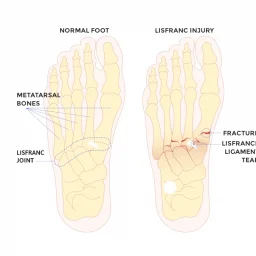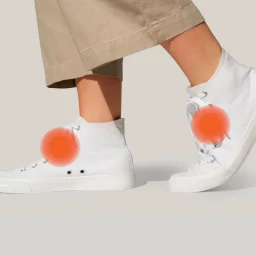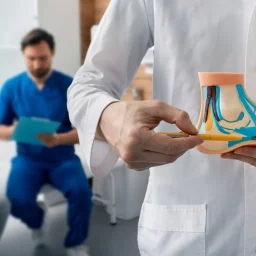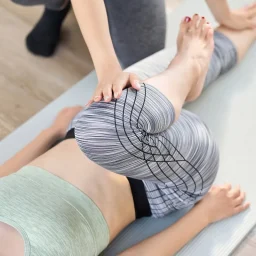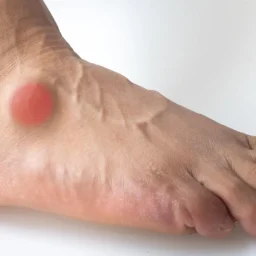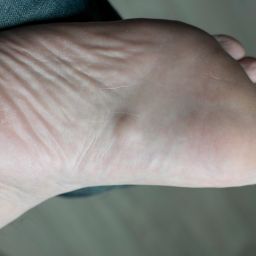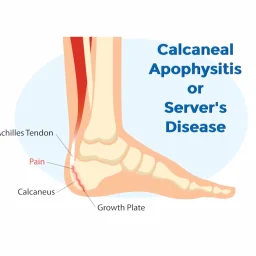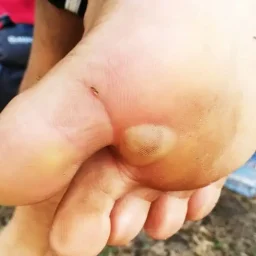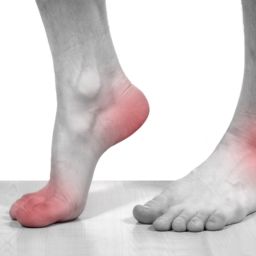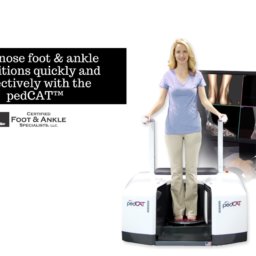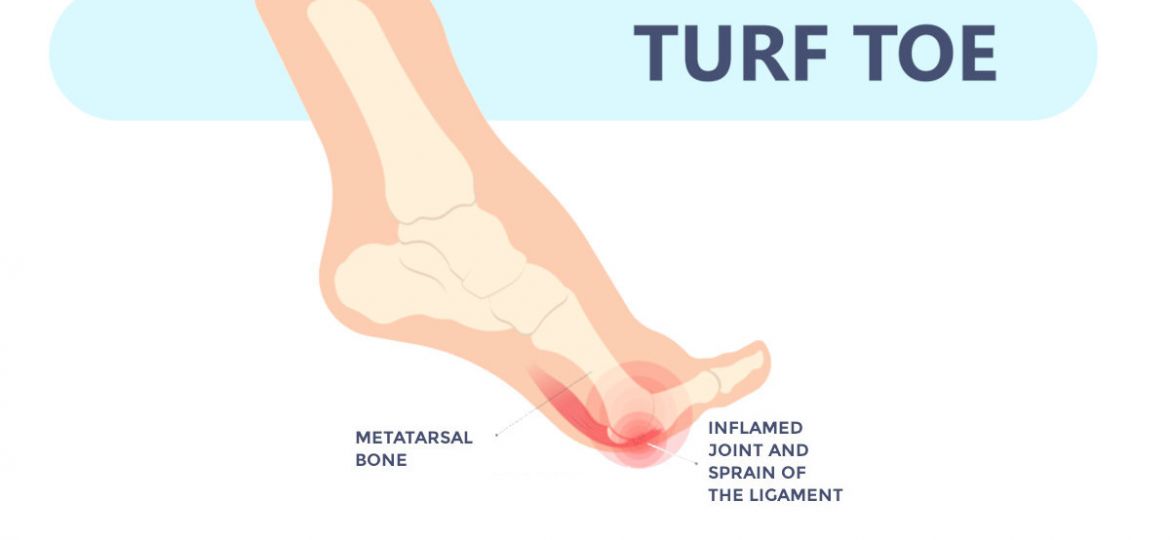
Turf toe is a common sports-related injury that can affect athletes of all levels. While it may sound minor, turf toe can have a significant impact on an individual’s performance and overall well-being. In this blog, we will explore what turf toe is, its causes, symptoms, diagnosis, treatment options, and preventive measures.
What is Turf Toe?
Turf toe refers to a sprain of the big toe joint resulting from hyperextension of the toe. This injury is particularly prevalent in athletes who play sports on artificial turf surfaces, hence the name “turf toe.” However, it can also occur on natural grass or other hard surfaces.
Causes
Turf toe is often caused by the following factors:
- Hyperextension: Abrupt hyperextension of the big toe, especially when pushing off forcefully, can lead to turf toe. This commonly happens during activities like running, jumping, or abruptly stopping.
- Playing Surface: Athletes who participate in sports on artificial turf are more susceptible to turf toe due to the less forgiving nature of these surfaces compared to natural grass.
 Symptoms of Turf Toe
Symptoms of Turf Toe
Recognizing the symptoms of turf toe is crucial for early intervention. Common signs include:
- Pain: Persistent pain, particularly at the base of the big toe, is a primary symptom of turf toe.
- Swelling: Swelling around the affected joint may occur, accompanied by redness and warmth.
- Limited Range of Motion: Turf toe can restrict the normal range of motion in the big toe, making it difficult to push off or bear weight on the affected foot.
Diagnosis typically involves
- Physical Examination: A healthcare provider will assess the extent of the injury through a physical examination, checking for tenderness, swelling, and range of motion.
- Imaging Tests: X-rays or other imaging tests may be conducted to rule out fractures or other potential complications.
Turf Toe Treatment Options
Depending on how severe the injury is, different treatment paths should be considered. Common approaches include:
- Rest and Ice: Resting the foot and applying ice can help alleviate pain and reduce swelling.
- Immobilization: In some cases, a brace or taping may be recommended to immobilize the toe and promote healing.
- Medications (Anti-Inflammatory) : A chiropodist or podiatrist may prescribe non-steroidal drugs (NSAIDs) to manage pain and inflammation.
- Physical Therapy: Rehabilitative exercises can help restore strength and flexibility in the affected toe.
Preventive Measures
To reduce the risk of turf toe, athletes can take the following precautions:
- Proper Footwear: Choose shoes that provide adequate support and stability for the specific sport.
- Conditioning Exercises: Strengthening the muscles around the foot and ankle can help prevent injuries.
- Playing Surface Awareness: Be mindful of the playing surface, especially on artificial turf, and adjust movements accordingly.
Conclusion
Turf toe is a common injury that can affect athletes in various sports. Understanding the causes, symptoms, and turf toe treatment options is essential for both prevention and effective management. If you suspect turf toe, seeking prompt medical attention is crucial to ensure a swift and successful recovery, allowing athletes to return to their chosen activities with confidence.
If you’re experiencing persistent pain, swelling, or limited range of motion in your big toe, you may be dealing with turf toe—an injury that can significantly impact your daily activities and sports performance. It’s crucial not to ignore these symptoms, as early intervention can make a substantial difference in the recovery process. Our dedicated team of professionals is here to help. If you suspect turf toe, we encourage you to schedule a consultation at our office. Our experienced healthcare provider will conduct a thorough examination, discuss your symptoms, and tailor a personalized treatment plan to address your specific needs.
Don’t let turf toe sideline you; take the first step towards recovery by seeking professional turf toe treatment and care today. Your well-being is our priority, and we are committed to helping you get back on your feet and back in the game. Schedule a consultation with Dr. Nathalia Esmeral, DPM, a caring and experienced local foot doctor near you, in the Tampa Bay area. So schedule an appointment at our Certified Foot and Ankle Specialists foot clinic located at 7926 W Hillsborough Ave Suite G, Tampa, FL 33615
You can rest assured all of podiatrists are certified and experienced in foot related issues.
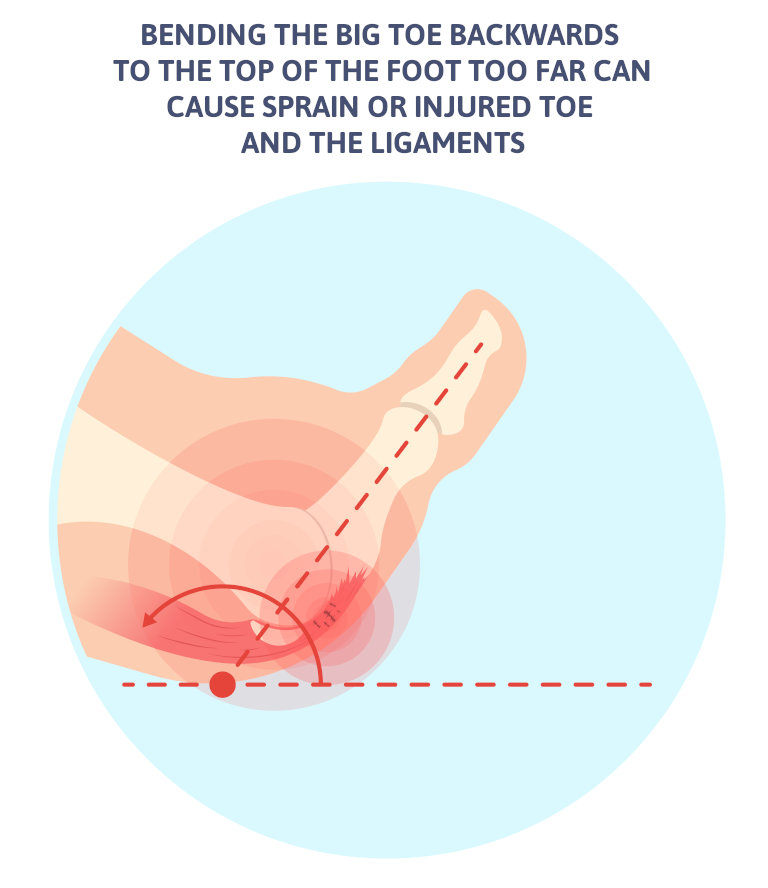 Symptoms of Turf Toe
Symptoms of Turf Toe